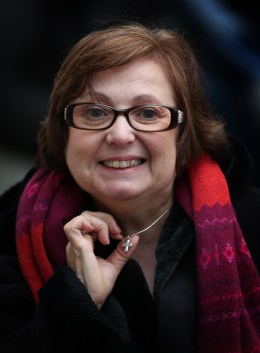
The European Court of Human Rights has passed judgement on Nadia Eweida and three other individuals who claim their employers discriminated against them for their Christan beliefs.
A British Airways employee has been awarded more than $2,500 following a European Court of Human Rights ruling on her right to religious expression, reports the Guardian. Nadia Eweida, 60, who lives in southwest London and works at a BA check-in counter, was sent home in 2006 after she refused to remove the cross she wore around her neck in the workplace. Eweida brought her case to the European Court of Human Rights in Strasbourg, stating that the airline’s demand was a violation of her rights under Article 9 of the European Convention, which states “everyone has the right to freedom of thought, conscience and religion,” and that the British Government had failed to preserve these rights.
The courts ruled that the British court system had not done enough to protect Ms. Eweida, a Coptic Christian, from discrimination after she lost an employment tribunal case in which she’d challenged BA’s uniform policy. The European court found that “in these circumstances where there is no evidence of any real encroachment on the interests of others, the domestic authorities failed sufficiently to protect the applicant’s right to manifest her religion,” reports the Telegraph.
(MORE: British Airways to Search Google for Passenger Photos)
Manifestation of religion, the court said, is a “fundamental right,” arguing that “a healthy democratic society needs to tolerate and sustain pluralism and diversity.”
Ms. Eweida’s case was one of four brought before the ECHR regarding freedom of religious expression. However, judges found that the rights of the other three had not been violated, reports the BBC. The first of these cases involved a nurse who was prevented from wearing a cross in work. Judges found that the applicant’s rights had not been violated given the heath and safety concerns involved in working in a hospital. The court also rejected the other two cases: a marriage counselor who was fired after saying that he might object to giving advice to gay couples, and a civil registrar who was reprimanded for saying that she did not want to conduct same-sex civil partnership ceremonies.
(MORE: British Women Sue After Crucifix Necklaces Cost Them Their Jobs)
The Christian Institute, a UK-based religious charity, said that it was “disappointed,” by the latter rulings, saying they revealed how Christians with traditional beliefs about marriage are “at risk of being left out in the cold,” as the BBC reported. Meanwhile the Archbishop of York has released a statement noting that “Christians and those of other faiths should be free to wear the symbols of their own religion without discrimination.”
Prime Minister David Cameron responded to the ruling saying he was “delighted that principle of wearing religious symbols at work has been upheld.” His government has, however, faced charges of hypocrisy, according to the Telegraph, after Cameron vowed to change the laws to preserve freedom of religious expression even as government lawyers were actively fighting Eweida in court.
British Airways changed its policy in 2007 to specifically recognize its employees’ right to wear symbols of faith. An airline spokesperson has confirmed that Nadia Eweida is still part of the company, where she has been working for 13 years.






